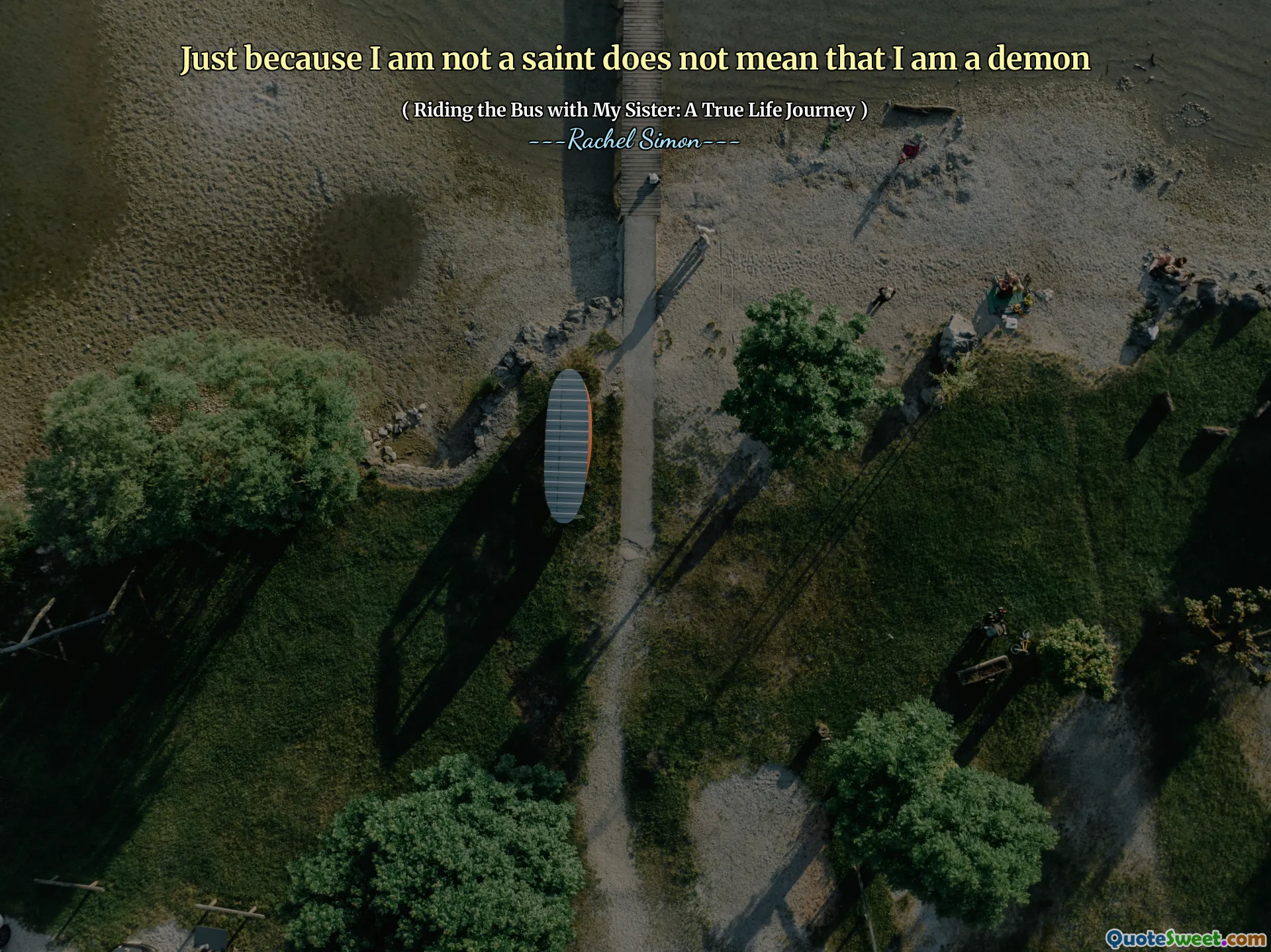
Just because I am not a saint does not mean that I am a demon
This quote speaks to the complexity of human morality and the tendency for society to categorize individuals in black-and-white terms—either as saints or demons. It reminds us that human nature is often more nuanced than such simplistic labels suggest. Many people live in the gray areas, embodying both virtues and flaws. Society’s tendency to idealize or demonize individuals can lead to unfair judgments that ignore the depth of human experience. Recognizing that someone isn’t a saint doesn’t automatically make them a villain; it simply acknowledges their imperfection and humanity.
This quote encourages us to extend compassion and understanding toward others, acknowledging that everyone has a mix of good and bad qualities. It also challenges us to reflect on our own self-perceptions—are we too quick to judge ourselves or others based on isolated actions? Underneath the surface, most people are a complex amalgamation of intentions, circumstances, and emotions. Embracing this complexity can foster empathy and create a more accepting society.
Furthermore, the statement moves beyond moral judgments and invites acceptance of imperfection as a fundamental part of being human. It suggests that flawfulness does not define guilt or evil but rather humanizes us all. By understanding that one's actions do not wholly define a person’s integrity or worth, we foster a more nuanced view of morality—one that values growth, repentance, and understanding.
In a world that often seeks simple answers and clear-cut categorizations, this quote calls for a more compassionate outlook—recognizing that the absence of sainthood doesn’t equate to malevolence, just as imperfection does not diminish our worth as individuals.







